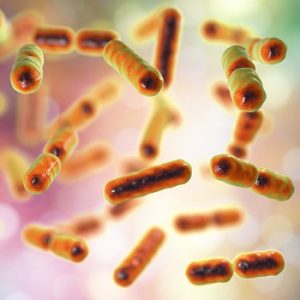
More evidence that low-calorie sweeteners are bad for your health
Studies show that artificial sweeteners can raise the risk of hypertension, metabolic syndrome, type 2 diabetes and heart disease, including stroke.

Natural Health News — Once upon a time it seemed like a crazy idea. Now a large human study has revealed the link between gut microbes and depression.
The study, published in the scientific journal Nature Microbiology, is the first population-level study to look at this link. Population-level studies look at a group of individuals taken from the general population who share a common characteristic, such as age, sex, or health condition.
The first human data
The researchers from KU Leuven, a research university in Flanders, Belgium, set out to study the relation between gut bacteria and quality of life and depression. The authors combined faecal microbiome data with general practitioner diagnoses of depression from 1,054 individuals enrolled in the Flemish Gut Flora Project.
Lead researcher Jeroen Raes and his team found a clear link between gut bacteria and mental health as well as identifying specific gut bacteria linked to depression and providing evidence that a wide range of gut bacteria can produce neuroactive compounds.
Two bacterial genera, Coprococcus and Dialister, were consistently depleted in individuals with depression, regardless of antidepressant treatment. The results were validated by comparing the data to a second an independent group of 1,063 individuals from the Dutch LifeLinesDEEP study and to a study group of clinically depressed patients at the University Hospitals Leuven, Belgium.
Neuroactive microbes
Prof Jeroen Raes an expert in Gastroenterology, Microbiology and Systems Biology at KU Leuven, says: “The relationship between gut microbial metabolism and mental health is a controversial topic in microbiome research. The notion that microbial metabolites can interact with our brain – and thus behaviour and feelings – is intriguing, but gut microbiome-brain communication has mostly been explored in animal models, with human research lagging behind. In our population-level study we identified several groups of bacteria that co-varied with human depression and quality of life across populations.’
Previously, Prof Raes and his team have documented low microbial count and biodiversity among Crohn’s disease patients. They were, they say, surprised to find a similar community type linked to depression and reduced quality of life.
“Apparently,” said Raes, “microbial communities that can be linked to intestinal inflammation and reduced wellbeing share a set of common features.’
This discovery builds on what is previously known. In 2015 research from Emory University School of Medicine and Winship Cancer Institute found that about one third of people with depression also have high levels of inflammation markers in their blood,
In this study, the authors were also able to identify gut bacteria that could potentially interact with the human nervous system. They studied genomes of more than 500 bacteria isolated from the human gastrointestinal tract according to their ability to produce a set of neuroactive compounds. This has allowed the authors to assemble a comprehensive guide to neuroactivity of gut species. Some bacteria were found to carry a broad range of these functions.
A new tool in the toolbox
Co-author Mireia Valles-Colomer, also from KU Leuven: ‘Many neuroactive compounds are produced in the human gut. Our toolbox not only allows us to identify the different bacteria that could play a role in mental health conditions, but also the mechanisms potentially involved in this interaction with the host. For example, we found that the ability of microorganisms to produce DOPAC, a metabolite of the human neurotransmitter dopamine, was associated with better mental quality of life.’
The researchers are now aiming to sample a larger group of people to confirm their findings.

Please subscribe me to your newsletter mailing list. I have read the
privacy statement